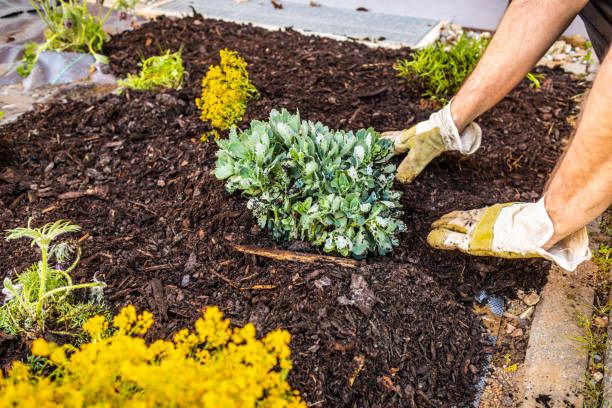
Sustainable Landscaping Solutions: Eco-Friendly Practices for Your Home Garden Jul 13, 2025
To begin with, understanding the core principles of sustainable landscaping is essential. This approach to gardening focuses on conserving resources, minimizing waste, and enhancing the natural environment. By integrating these practices, you can enjoy a beautiful garden that benefits both you and the ecosystem.
A fundamental step in sustainable landscaping is to select native plants. Native plants are uniquely adapted to your region's climate, thriving with less water and fewer chemicals. By choosing plants native to your area, you support local wildlife such as birds and pollinators, contribute to biodiversity, and reduce the need for artificial fertilizers. Bakers Landscape & Design offers expert advice on selecting the right native plants that suit your aesthetic preferences and environmental conditions.
Efficient water management is another cornerstone of eco-friendly gardening. Implementing techniques such as rainwater harvesting and drip irrigation can significantly reduce water usage. Rain barrels collect rainwater that can be used for irrigation, while drip irrigation systems deliver water directly to the plant roots where it is needed most, thus minimizing evaporation and runoff. These systems are not only sustainable but also cost-effective, allowing you to maintain a lush garden without inflating your water bills.
Improving your soil health through composting is an excellent way to foster a sustainable garden. Composting household waste like vegetable scraps and leaves generates nutrient-rich soil that enhances plant growth. This practice reduces landfill waste and decreases the need for chemical fertilizers, promoting a healthier garden environment. At Bakers Landscape & Design, we can guide you in setting up and maintaining a compost system that brings out the best in your garden.
Additionally, creating a habitat for wildlife goes hand-in-hand with sustainable gardening. By incorporating elements such as bird feeders, water features, and native grasses, your garden can become a sanctuary for various species. These features not only add visual interest to your landscape but also play a crucial role in supporting local ecosystems.
Mulching is another effective practice in sustainable landscaping. Organic mulch, such as wood chips or straw, helps retain soil moisture, suppresses weeds, and adds organic matter to the soil as it decomposes. This process not only enhances plant health but also reduces the amount of watering and weeding required, saving time and resources.
Finally, consider implementing permeable surfaces in your hardscaping designs. Permeable pavers allow water to seep through, reducing runoff and promoting groundwater recharge. This measure lessens the impact on stormwater systems and aligns with sustainable landscape practices that manage water effectively.
In conclusion, sustainable landscaping is an achievable goal that benefits homeowners and the environment alike. By choosing native plants, optimizing water use, enriching the soil, and supporting local wildlife, you can create a garden that thrives naturally. Bakers Landscape & Design is dedicated to helping you realize these sustainable solutions, transforming your garden into a sustainable paradise that will delight you and future generations.
/filters:no_upscale()/media/2f93dcc7-d37a-4f31-a0e7-53f5e729685c.jpeg)
/filters:no_upscale()/filters:format(webp)/media/c9d3d7e8-6b18-4a74-b672-1555d8cd881e.jpeg)